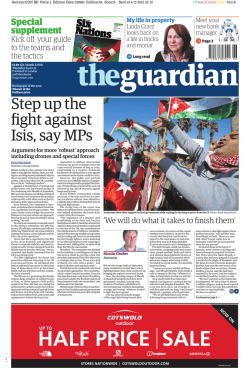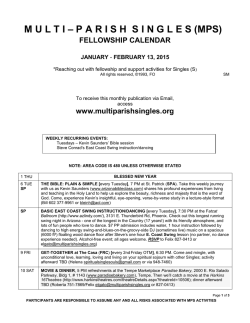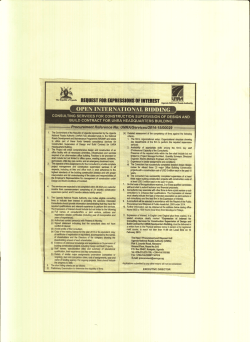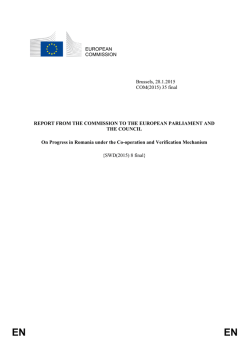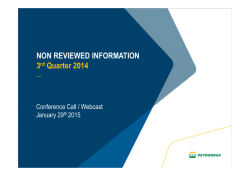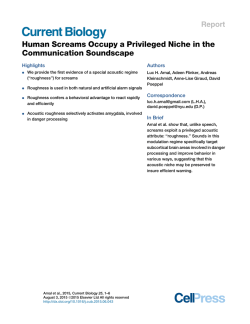
Elite and Mass Support for Foreign Aid versus Government Programs
ELITE AND MASS SUPPORT FOR FOREIGN AID VERSUS GOVERNMENT PROGRAMS: EXPERIMENTAL EVIDENCE FROM UGANDA MichaelG.Findley DepartmentofGovernment UniversityofTexasatAustin [email protected] AdamS.Harris DepartmentofPoliticalScience NewYorkUniversity [email protected] HelenV.Milner DepartmentofPolitics PrincetonUniversity [email protected] DanielNielson DepartmentofPoliticalScience BrighamYoungUniversity [email protected] January31,2015 Abstract Wecompareeliteandmasssupportforforeignaidversusgovernmentspendingondevelopment projects.WeperformedanexperimentandsurveyonmembersoftheUgandannationalparliament andaparallelstudyonarepresentativesampleofroughly3,600Ugandancitizens.Fortwoactual aidprojectsinthepipeline,werandomlyassignedexposuretotheprojects’differentfunders.Sig‐ nificant treatment effects on attitudes and behaviors reveal that members of parliament support government programs over foreign aid, whereas citizens prefer aid over government. Using sub‐ group analysis, we explore several mechanisms that might explain this pattern: partisanship, co‐ ethnic bias, nationalism, incumbency, a foreign media effect, and corruption. Effects are most ap‐ parent for members of parliament and citizens who perceive significant government corruption, suggestingthatcitizensseeforeignaidasanescapefromcorruption,butelitesperceivemoreave‐ nuesforthecaptureofgovernmentresourcescomparedtoaid. Prepared for the 8th annual Political Economy of International Organizations (PEIO) con‐ ference,HertieSchoolofGovernance,Berlin,Germany,Feb.12‐14,2015. 1 Introduction Academic disputes rage over what foreign aid allows politicians to do. For some scholars,aidenablespoliticalelitestobuyvotes,buildmilitariesforrepression,andenrich themselvesthroughcorruption(Svensson,2000;AlesinaandWeder,2002;Bräutigamand Knack,2004;Easterly,2006;Morrison,2009;Moyo,2009;Morrison,2012).Aidmaythus underminecitizens’abilitytoholdpoliticalelitesaccountableforhowpublicrevenuesare spent(Ross,2004;Knack,2009;Morrison,2009;Moyo,2009). Alternatively,othersarguethatforeignaidcanbypasscorruptpoliticiansandthus deliverneededpublicgoodsdirectlytorecipientsevenasitpromotescivilsocietyactors thatcandemandbettergovernance(Finkeletal.,2007;WrightandWinters,2010;Bermeo, 2014; McLean and Schneider, 2014; Mosley, forthcoming). Additionally, much aid targets government capacity building and might contribute to the development of better‐ functioninginstitutionsandthusconstrainpoliticianstocleanupcorruptionandmisman‐ agement(Riddell,2007;BaserandMorgan,2008). Missingfromthedebate,however,aretwoimportantelements.First,greateratten‐ tionneedstobefocusedonthesupportforaidofbothpoliticalelitesandcitizensinrecipi‐ entcountries,whoseoutlookislittleunderstooddespitebeingaid’scriticalintermediaries andultimatebeneficiaries,respectively.Second,aiddoesnotoccurinaninstitutionalvacu‐ um, so we need a meaningful baseline to which to compare it, and government projects providethemostrelevantalternative.Whatmightbeinferredfromtheoreticalmodelsand cross‐national statistical studies based on observational evidence may be different from therealityontheground.Mosttheoriesshareexpectationsaboutdomesticelites,arguing 2 thattheyplayasignificantroleinshapinghowforeignaidaffectstheircountry.Yet,toour knowledge,nodirectandsystematicevidencehasbeengatheredthatemployspoliticians asrespondentsinstudieswheretheyreflectonthedispositionofaid.Studiesofrecipient citizens’supportforaidarelikewiserare.Moreover,thecurrentevidencelacksidentifica‐ tionofcausaleffectsthatmightbebettersuppliedbyexperimentalmethodsthatcompare attitudinal and behavioral support for aid versus government spending within and be‐ tweenpoliticiansandcitizens. Wereporttwoparallelexperimentsperformedin2012inUgandathatcontrastelite andcitizensupportfordevelopmentprojectsintreatmentconditionsattributedtoforeign donorscomparedtoidenticalprojectsinacontrolconditioninwhichnodonorwasexplic‐ itly mentioned and that most sampled Ugandans took to be the domestic government. A sizableminorityofsubjectsbelievedtheunnamedfunderinthecontrolconditionwasac‐ tuallyaforeigndonor,butthisworksinfavorofthenullhypothesisofnosignificantdiffer‐ ence between treatment conditions and control. The differences reported below thus understateelites’andcitizens’contrastingpreferencesforaidversusgovernmentprojects giventheinformationwehave,aresultweshowindetailintherobustnesssection. While our experiments cannot settle the broader debate on aid effectiveness, they can provide direct causal evidence about the effects of different sources of development fundingontheattitudesandbehaviorofelitesandcitizens.Theseattitudesandbehaviors areimportantandworthyofstudy.Buttheymayalsoreflectatleastindirectlyonanim‐ portantlinkinthechainconnectingrevenuesourcestogovernanceandpolicyoutcomes. 3 In all, we were able to conduct nearly hour‐long interviews with more than two thirds of the sitting Ninth Ugandan Parliament (276 out of 375 members of parliament). Wealsoconductedthestudywith78formerMPsfromtheEighthParliament.(Totalcur‐ rentandformerMPssurveyedis354.)Moreover,werandomlysampledanationallyrepre‐ sentative group of roughly 3,600 Ugandan citizens for comparisons. The parallel experiments provided an opportunity for each set of subjects to demonstrate individual‐ levelsupportforforeignaidorgovernmentfundsthroughbehavioralactionsthatimposed personalcostsaswellasthroughresponsestoattitudinalsurveyquestions. Interestingly,wefindthatthemembersofparliamentaresignificantlymorelikely to support projects in the control condition that most took to be the government rather than treatment projects identifying foreign donors. However, citizens are significantly morelikelytosupportforeigndonorsoverthecontrolcondition,preciselytheoppositeof theelites.Effectsizesaregenerallymodestandapproachaceiling,butthedifferencesare significantandrobustacrossavarietyofspecifications.Thesedifferencesbetweenthepub‐ licandeliteinUgandaformaninterestingandnovelpuzzle. Employing subgroup analysis, we explore the leading candidates for the mecha‐ nisms that might underlie these differences: partisanship, ethnicity, nationalism, incum‐ bency,aforeignmediaeffect,andcorruption.Ingeneral,thesubgroupresultsprovidenull or weak evidence for all of the possible mechanisms, except one: the corruption mecha‐ nism.MPswhoperceivegreatergovernmentcorruptionareespeciallylikelytopreferthe governmentprojectsoverforeignaid,whereascitizensperceivinggovernmentcorruption were significantly more likely to support the aid projects. Subjects who did not perceive 4 corruptionappearedindifferentbetweenaidandgovernmentprojects.Effectsizesforcor‐ ruptionsubgroupanalyseswereconsiderablylargerthaninthemainanalysis. Thisstudymakesatleastthreecontributionsthatdirectlyaddresskeygapsinour understandingofthepoliticaleconomyofdevelopment.Itistheonlyexperimentalstudy randomlyassigningforeignversusdomesticsourcesofprojectfundingandthusabletore‐ vealcausaleffectsonboththeattitudesandbehaviorofrecipients.Second,itisthefirstde‐ tailed study of foreign aid versus domestic government funding to employ members of parliamentinarecipientgovernmentasrespondents.Third,itprovidesaninvestigationof sixalternativemechanismsthatmightexplainthesignificantdifferencesbetweeneliteand masssupportfordevelopmentprojectsfromcompetingsourcesoffunding. In the next section, we review the debate over how political elites might use aid comparedtogovernmentresourcestopromotetheirownendsontheonehandorserve publicgoalsontheother,andwefurtherdelineatetheempiricalexpectationsoftheoppos‐ ingarguments.Wethendiscusstheevidenceforthecompetingargumentsdrawnfromour experiment on members of parliament and citizens. The results tell an interesting story aboutmassandelitebeliefs,preferences,andbehavior.Inparticulartheysuggestthat–at leastinthemindsofthosewithdirectexperience–aidmaybelesssusceptibletopolitical capturethangovernmentresources.Inthenextsection,welookatthemainalternativeex‐ planationsforourfindingsandevaluatewhetherourdatasupporttheseinterpretations.In therobustnesssection,wediscusstwoissuesthatarisefromourexperimentalprocedures andshowthatneitherofthemshouldinvalidateourresults.Weconcludebyreturningto the main themes about attitudes toward aid relative to government funding of develop‐ 5 ment projects. And we note how bringing together the comparative politics research on corruptionandclientelismwiththeliteratureonforeignaidmaybefruitful. The Debate Strongargumentsexistonbothsidesofthedebateoverhowelitesmightemployaid versusgovernmentrevenuestopromotetheirpoliticalcareers.Ontheonehand,analysts have likened aid to natural resources in the way they “curse” developing countries with conflict, autocracy, and poor governance (Morrison, 2009; Moyo, 2009, p. 59; Morrison, 2012). Prominent studies have held that external sources of money, such as natural re‐ sourcesandaid,enablepoliticianstoentrenchthemselvesratherthanbeheldaccountable for the use of tax revenues (Bräutigam, 2000; Smith, 2008; Morrison, 2009; Gervasoni, 2010).Citizens,itisclaimed,demandmoreaccountabilityandbetteroutcomeswhentheir taxdollarsareatplay(Schumpeter,1954;NorthandWeingast,1989;Ross,2004). Prominentworkimpliesthattheremightexistadifferencebetweenpoliticalelites and the mass public in attitudes toward aid. For example, Bueno de Mesquita and Smith (2007,2009)arguethatpoliticalelitesinthedonorandrecipientcountriesarethemajor beneficiariesofaid,soaidfunctionstoincreasethepoliticallongevityofelitesinrecipient countries.Theyalsoarguethatthebiggestlosersfromaidarethemasspublicsinpoorna‐ tionswhoareforcedtoacceptpolicyconcessionstheyopposeandtoenduremorecorrup‐ tionfromtheirownleaders(BuenodeMesquitaandSmith,2009,p.311). 6 Alternatively,otherscholarsarguethatdonorsunderstandmanyofthechallenges they face in developing countries and try to act strategically to advance their goals.1For‐ eignaid–especiallyifitismonitored,hasconditionsattachedtoit,orislessfungible–may servemoreasapublicgoodthatpoliticiansstruggletodiverttothemselvesandtheirallies (MavrotasandOuattara,2006).Often,aidexplicitlytargetsimprovementsingovernment capacity.Forexample,Bermeo(2014,p.4)presentsfindingsthataiddoesnotinhibitde‐ mocratization,notingthat“aidisnotoil.Foreignaidcomesfromdonorsanddonorshave preferences.Theyalsohavetoolstoprovideaheterogeneousbasketofaidwhichcanlook verydifferentfromtherevenuestreamattachedtoastate‐ownedenterprise.” Evenif aidfails to strengtheninstitutions orbuild capacity directly, an alternative literature claims that aid – especially for democracy and governance – can find ways aroundincumbentpoliticians.Dietrich(2013)showsthatdonorsstrategicallydecidehow muchaidtoprovidedirectlytogovernmentsandhowmuchtobypassthem.This“circum‐ vention” aid can support opposition parties, watchdog media, and civil society organiza‐ tionsthatmighteffectivelydemandmoreaccountability.Indeed,someevidencesuggests thataidcontributessignificantlytodemocratizationinrecipientgovernments(Finkeletal., 2007;ScottandSteele,2011;Aronowetal.,2012). Thedebateremainsunresolved.Extantstudiesaddresstheproblemfrommultiple methodologicalperspectives,butthusfarhavenottakenthestudydirectlytothepolitical elites who may use (or abuse) foreign aid nor to the masses who may benefit or suffer. 1Bermeo,2010;Bermeo,2011.showsthatdonorsgoalsseemtohavechangedsincetheendoftheColdWar andthattheyaremorefocusednowondevelopmentanddemocracypromotion.Shedemonstratesthatdo‐ norspursue“strategicdevelopment,”targetingandstrategicallyallocatingdifferenttypesofaidtodifferent typesofcountries. 7 Whilenomethodologyisperfect,andourexperimentalapproachdoesnotresolvetheaid effectiveness debate, focused experiments using elites and citizens as subjects may con‐ tributetothisdebatebyprovidingevidenceaboutwhosupportsforeignaidorgovernment funding for development projects, and their reasons for doing so. Support for different sourcesofrevenueamongmassesandelites–particularlytheirbehavioralsupport–ought toshedsomelight,evenifindirect,onakeylinkinthecausalchainconnectingfundingto outcomes. Iftheliteratureclaimingthataidenablescorruptpoliticianstoentrenchthemselves is correct, politicians should prefer foreign aid over government‐funded programs since theywillbefreertousetheaidfortheirownpurposescomparedtotaxrevenuesforwhich they must answer to the public. If aid is more accountable to foreign agencies, however, anddonorshavethecapacitytoaudit,constrain,andpunishpoliticianswhotrytouseaid fortheirownpoliticalends,thenweexpectadifferentresult:elitesshouldprefergovern‐ mentprogramstoforeignaidprojects.MPsshouldbeespeciallykeentouseavailablere‐ sources to maintain their privileged position through clientelism and should therefore preferthefundingsourcewithfewerconstraints(seevandeWalle,2003,p.313).2 Preferencesofcitizensshouldmoveintheoppositedirection.Ifcitizensbelievethey canbetterholdtheirrepresentativesaccountablefortaxrevenue,theyshouldmorestrong‐ lysupportgovernmentspendingoveraid.Butifcitizensperceiveforeigndonorsandaidas 2Similarly,whatRothchild,1986.called“hegemonialexchange”andBayart,1993.“reciprocalassimilationof elites,” clientelism pervades Africa since political stability there has often been constructed by using state resourcesto forge alliances across different social elites, often in the formofovertpower‐sharingarrange‐ mentsvandeWalle,2003.. 8 betteratproducingpublicgoodsthangovernmentspending,theyshouldpreferaid.3Along nearlyeverymajorbywayinUganda,asinmanydevelopingcountries,signstyingprojects toforeignordomesticdonorscrowdtheroadsideandthereforewouldmaketheconnec‐ tionofaidtooutcomespossible.Ofcourse,citizens’perceptionsmaybemistakenaboutthe effectsofaid,andweareopentointerpretingourdatainthislight.However,evenifciti‐ zensaremisinformed,politicians,wewouldargue,haveabettergraspoftheeffectsofdif‐ ferentsourcesofrevenueontheirpoliticalcareers.Andsocombiningstudiesofthetwo subjectpoolsandcomparingtheirattitudesandbehaviorstowardthesameexperimental conditionsisparticularlyusefulandnovel. Ourexperimentscannotresolvetheaideffectivenessdebate.However,wedocon‐ tendthattheresults–especiallyfortheMPexperiment–mayreflectindirectlyonkeylinks in the causal chain connecting aid to outcomes. Nevertheless, we stress that the disposi‐ tions–andespeciallythebehavioralactionstaken–towardaidbycitizensandespecially MPsareinterestingintheownright.Citizensaretheultimatebeneficiariesofaid,andthey notoriously suffer from the results of “broken feedback loop” underscoring the missing communicationbetweendonorsandrecipients(Martensetal.2002).Thebrokenfeedback looprequiresthatcitizensbeaskedaboutaid,whichiswhatwedohere. Moreover,membersofparliamentofteninfluencehowaidisdistributedinrecipient countries. Learning MPs’ disposition and behavior toward aid, especially as it compares with government funding, appears important to understanding how aid might be chan‐ 3Wealsoinvestigatedpreferencesoflocalgovernmentofficials(similartostateandcitylevelofficialsinthe US),butfoundnosignificantpreferenceforgovernmentoraid‐fundedprojects.Thisislikelythecasebecause theseofficialsmostlyreceivefundsfromthecentralgovernmentthatareearmarkedalready. 9 neledthroughdomesticinstitutions.Itmayalsoreflectonthewaysthataidmightbedif‐ ferentfromgovernmentmoneyingarneringparliamentarysupportforprogramsthatfor‐ eigngovernmentsandinternationalorganizationswantrecipientstopursue. The Ugandan Context Uganda currently has a semi‐authoritarian regime in which the government of YoweriMuseveni’sNationalResistanceMovement(NRM)hasretainedpowerfornearly30 years(vandeWalle,2007;Greene,2010).In2006,Ugandabeganholdingmultipartyelec‐ tions;yettheyhavenotbeenfullyfreeandfair(Cheibubetal.,2010;HydeandMarinov, 2012). Scholars describe the party’s ruling methods as relying heavily on patronage and clientelismtoretainitscontrol(vandeWalle,2003,2007;Muhumuza,2009;Green,2010; Tripp,2010).Asonerecentstudypointsout,“InUganda,therulingNRMhasestablished patronagenetworksthroughoutthecountrythroughtheuseoflocalgovernment.Thecivil serviceisanothersuchnetworkofpatronage,andperhapsthemostimportantisthemili‐ tary. These clientelist networks, while consolidating key sources of support, at the same timeunderminegovernanceanderodetheviabilityofinstitutionsandleadership”(Tripp, 2010,p.25).Asof2010,Ugandaranksonthehigherendofcorruptionscales,scoringin the 72nd percentile (129th out of 178) onTransparency International’s CorruptionPercep‐ tionsIndex. Partisanship and ethnic attachments have also played important roles in Ugandan politics at both the citizen and elite levels, revolving around the NRM‐opposition split. However,recently,theNRMhasfacedimportantoppositionnotjustfromoppositionpar‐ 10 ties,whoarefracturedandcurrentlyonlyhold16%oftheseatsinparliament,butmainly fromwithintheNRM’sownranks.Intherun‐uptothe2011parliamentaryelections,for example,theNRMprimarieswerehotlycontested(inmanyinstancesmorecontestedthan thegeneralelections).Ballotboxeswerestuffedandelectionsriggedtoensurethatparty‐ leaderfavoriteswontheNRMpartynomination(Malinga,2010).Thisledtowidediscon‐ tentamongthelosersoftheprimaries.Manyoftheseindividualsthenranasindependents in2011,andnowthecurrentparliamenthasmoreindependentsthananysingleopposi‐ tionparty,whichmakestheroleofpartisanshipmorecomplicatedandlesspredictable.4 EthnicityisalsoimportantintheUgandanpoliticalcontext.Critically,sharedethnic‐ itywiththechiefexecutiveofthecountryhasimportantpoliticalanddevelopmentalcon‐ sequencesinthattheleader’sco‐ethnicsarelikelytobenefit(FranckandRainer,2012).In Uganda,itiscommonlyunderstoodthatwhenNorthernerssuchasPresidentMiltonObote wereinpower,theNorthernregionofthecountryreceivedthemostbenefitsintermsof development, government employment, and other material goods. Now, under President Museveni,manycitizensarguethattheWesternregion,especiallythoseareasinwhichhis fellowMuyankolearedominant,receivethenewroads,schools,andclinics.Whetherornot thisisinfacttrue,citizenstendtooperateundertheseassumptions(seePosner,2005). 4ThecurrentUgandanparliamenthas375membersrepresenting7politicalparties:238ConstituencyMPs, 112WomanMPs,10UgandanPeople’sDefenseForce(UPDF)representative,and5representativesforeach ofthefollowingspecialinterestgroups:peoplewithdisabilities(PWD),workers,andyouth.Thevastmajority ofMPsareelectedunderpluralityrulesinsingle‐memberconstituencies.Eachdistrictelectsonefemalerep‐ resentative and eachconstituency (usually two or three constituencies are contained in one district) elects oneConstituencyMP.Elevenex‐officiomembersareappointedinaddition,andeachofthefivegeographical regionselectsonePWD,Worker,andYouthrepresentativeandtwoUPDFrepresentatives. 11 Ugandaprovidesausefulsettingfortheexperimentbecauseitreceivessubstantial amounts of foreign development assistance. Since the 1990s, aid including off‐budget sources equals approximately 70 percent of government expenditures. Moreover, aid en‐ compassedabout15percentoftotalGDPformuchofthatperiod,thoughthesharehasde‐ clinedtosomeextentinthelastfewyearsaseconomicgrowthhasincreased.Somebasic informationgarneredfromoursurveyconfirmedthatcitizenshadgeneralawarenessboth of foreign aid and their parliamentary representatives. More than two thirds of subjects knewthatmorethan30percentoftheUgandanbudgetcomesfromforeignaid;thevast majority(66percent)couldnameboththeirConstituencymemberofparliamentandDis‐ trictWomanmemberofparliament;andthemajorityofsubjectswereawareofforeignaid flowingtotheirlocalareas.UgandaisalsotypicalofAfricancountriesintermsofitsde‐ mocratizationprocesses,currentlevelofdemocratization,andexecutivedominance(Brat‐ tonandvandeWalle1997,ResnickandvandeWalle2013).Likewise,muchlikemanyof the countries across the continent, the Ugandan parliament sees quite competitive elec‐ tionsandwhileitismuchweakerthantheexecutiveitismuchmorethansimplyarubber stampandisavenueforimportantandlivelydebates(HumphreysandWeinstein2013).If we consider Uganda’s level of democracy (Polity IV score) and degree of aid dependence (World Bank’s World Development Indicator of net official development assistance per capita),UgandaisverysimilartoEthiopia,Guinea‐Bissau,Togo,Chad,andtheCentralAfri‐ canRepublic.Whiletherearevariousotherconsiderationssuchasethnicdiversity,coloni‐ alhistory,levelsofeconomicdevelopment,etc.similarityonthesetwokeymeasuresare importantforunderstandingtowhichcasestheseresultsmostlikelygeneralize. 12 ResearchDesign Toinvestigatecompetingexpectationsregardingeliteandmasspreferencesforfor‐ eign aid compared to a control condition implying government programs, we conducted twodifferentexperimentsinthefield,eachwithcompanionsurveys.First,wecarriedout anexperimentonaconveniencesampleof276ofthe375Membersofthe9thUgandanPar‐ liament(thesittinglegislature)and78formerMPsfromthe8thParliament(totalcurrent andformerMPssurveyedis354).AlthoughwesampledMPsbyconvenience,thedistribu‐ tionisstrikinglysimilartotheactualparliamentatthattime,whichwediscussbelow(See Table1).Second,weconductedanationallyrepresentativeexperimentonnearly3,600cit‐ izens in 42 of Uganda’s 112 districts. We used a clustered random sample for the citizen surveytoensureregionalandpoliticalrepresentativeness.Bothexperimentsweresimilar, butnotidentical.TheywereperformedbetweenJuneandOctober2012bylocalUgandan enumerators.5 [TABLE1ABOUTHERE] TomaximizethenumberofresponsesintheMPsurvey,weattemptedtoconducta censusofallcurrentMPsandachieveda72percentresponserate.Inaddition,wealsocon‐ tactedasmanyformerMPsaspossible(fromthepreviousparliament)andobtaineda55 5ItispossiblethatsubjectsbelievedthelocalUgandanenumeratorsrepresentedaforeignaiddonororthe governmentratherthanacademicresearchers.Indeed,datafromtheAfrobarometersuggeststhatmostre‐ spondentsthinkthegovernmentistheonedoingsurveys.WeexaminedtheAfrobarometerquestionsabout subjects’perceptionsofwhosenttheenumerators.Inthe2012roundofUgandaAB(Round5),56%ofre‐ spondentsthoughtthegovernmentsenttheinterviewer.Inthe2008roundfor20differentcountriespooled together,58%ofrespondentsthoughtthegovernmentsenttheinterviewer.Thisshouldbiasagainstthere‐ sultswefind. 13 percentresponserate.6Whilekeyaspectsoftheexperimentalinstrumentswereidentical foreachpopulationgroupinordertofacilitatecomparisons,thecitizensurveywaslength‐ ierandthusgeneratedricherinformation. Thesamplesofrespondentsreflecttheunderlyingpopulationswell,andassignment to treatment conditions is not predicted by available observables, providing evidence of randomassignment.FortheMPsurvey,wedonothavedataonindividualMPcharacteris‐ ticssuchasreligionoreducationlevels.7Table1,however,presentsdescriptivestatistics from our sample and from Parliament as a whole for gender, party, region and MP type, whichgenerallymatchesthe9thParliamentasawhole.ThedistributionofMPsbyregionis largely representative, though it slightly oversamples those from the Central region and undersamplesthosefromtheNorthernregion.Andfinally,assignmenttotreatmentcondi‐ tionsamongMPsisnotsignificantlyrelatedtoparty,gender,MPtype,orregion,sothereis good covariate balance across experimental conditions. For the citizen survey, balancing andrandomizationproceduresalsoworkedwell.Keyvariables,suchaseducation,gender, age,party,religion,andregion,werenotsignificantlyrelatedtowhethercitizenswereas‐ signedtoagivenexperimentalcondition. 6TheformerMPresponserateislikelylowerbecausemanyformerMPsarescatteredthroughthecountry andnotaseasilyaccessibletoourresearchteamwhencomparedtocurrentMPswhoareusuallyinthecapi‐ talofKampala(ourresearchheadquarters). 7GiventimeconstraintsintheMPsurvey,wewereunabletoobtainmuchdemographicdataonMPstocom‐ parewiththemasssample.Beyondthecomparisonsinoutcomedataexploredbelow,wecanidentifysome comparisons. For example, the MP sample has more men, which is understandable given the parliament is disproportionatelymaleandtheMPsamplealsohasahigherproportionofNRMthanthemasssample. 14 Interventions The experimental manipulation presented each subject with a randomly assigned projectdescriptionandarandomlyassignedfunderforthatproject.Thisbetween‐subjects designisimportantforelicitingcomparisonsbetweengovernmentandforeigndonorpro‐ jectswheredirectcomparisonsmightbetoosensitive.Werandomlyassignedthemanipu‐ lationforactualpipelineprojectsforthcomingfromtheWorldBankanditsco‐financers.As such,thestudyavoidedactivedeception.Theprojectswereco‐financedbytheWorldBank andmultipleagencies,whichallowedustomanipulatewhichof themultipledonorswas presentedtothesubjectsasfunderoftheproject.Wealsorandomlyassignedthetypeof project: an infrastructure project (electricity) and an education project. Multilateral and bilateral donors jointly funded the projects. As is true with all World Bank projects, the Ugandangovernmentwasalsoinvolvedinthefundingandimplementation.MPs,inorder to increase the number of observations, were presented with and asked to express their supportinvariouswaysforboththeelectricityandeducationprojectsindividually(andin randomorder)butonlyonedonor.Citizensreceivedonlyoneofthetwopossibleprojects. Wechosetheelectricityandeducationprojectsbecausetheyrepresentthetypesof projects that can be given selectively to constituencies that support politicians. For the masssurvey,werandomlyassignedthedonorandtheprojecttype.Neitherprojecttypein themasssurveywassignificantlypreferredovertheotherinthebetween‐subjectsdesign, whichmayreflectthefactthatbothtypesofprojectsaredesperatelysoughtafterinUgan‐ da.Becausetherewerenosignificantdifferencesbetweenprojecttypes,wefocusourdis‐ cussionsonthedifferenceacrossfundertypes. 15 Our framing question read, “The Electricity Sector Development Project will im‐ provethereliabilityofandincreaseaccesstoelectricity.Onemajoraspectoftheprojectis toextendelectricitytothosewhodonotyethaveaccesstoit.Theprojectmayrequireyour communitytoprovidefundingformaintenanceinthefuture.[Thisprojectwillbefunded bythe{RANDOMLYASSIGNEDFUNDER}.]Howmuchwouldyousupportthisproject?”We includethetextfortheeducationprojectintheappendix. Weincludedthesentenceaboutfutureexpenses(“mayrequireyourcommunityto providefunding…”)toincreasetherespondents’sensethatthisprojectmightcostthemin themediumandlongtermtosupportit.Giventhataidmaybeperceivedas“freemoney” whereasgovernmentprogramsmayimplyincreasedtaxes,wewereconcernedthatoffer‐ ingaprojectwithoutanynotedcostsmightleadallsubjectstosupportit.Askepticmight worrythattheaddedcostconditionisnotsufficienttoovercomeabiastoward“free”re‐ sourcesamongsubjects.Aidmayfeellikeawindfall,butgovernmentprogramsmayseem to cost something tangible. This is a reasonable concern, and we took some measures to addressit.Wepresentthesedetailsintherobustnesssectionbelow. The funding organizations we randomly assigned in the MP experiment were the WorldBank,theGovernmentoftheUnitedStates,agenericmultilateralinstitution(“anin‐ ternationalorganizationfundedbymanycountries”),agenericbilateralagency(“asingle foreigncountry”),andNoDonor,inwhichweomittedthesentenceindicatingwhichagency was funding the project and served as the control condition. In the mass experiment, we also included the African Development Bank and the Government of China because the 16 largersubjectpoolenabledgreaterpowerandthereforethepossibilityformoretreatment conditions.8 Inthecaseofthecontrolcondition,weassumedthatrecipientswouldassociatethis casewithdomesticgovernmentspending.Wementionednothingaboutforeignaidorfor‐ eigndonorsinthisversionofthesurvey.Weelectednottonamethegovernmentexplicitly forthecitizensurveyoutoffearthatgeneralizedparanoiatowardgovernmentorassocia‐ tionswiththerulingpartymightbiasresponses.9WedidthesamefortheMPstoavoidso‐ cialdesirabilitybias(i.e.,governmentMPsmightfeelthey shouldsupportprojectsbythe government,andthuswhenthegovernmentisexplicitlynamed,wewouldreceiveinaccu‐ rateresponses). Althoughwemadethisdesignchoiceingoodfaithatthetime,inretrospectthisde‐ signchoicemaynothavebeenoptimal:explicitidentificationoftheUgandangovernment wouldhavepresentedalessambiguouscontrolcondition.Butaswedescribebelow,this design choice actually works in favor of the null hypothesis of no difference between treatmentandcontrol;andthereforeourresultslikelyunderstatethefullextentoftreat‐ menteffects.Moreover,giventheinformationwehave,weshowthatourresultsholdeven 8Inadditiontotestingthetreatmenteffectofreceivinganaiddonorrelativetothegovernmentcontrol,we alsotestedtheeffectofindividualdonorsacrossgroups.BecauseelitesdidnotreceivetheAfricanDevelop‐ mentBankandGovernmentofChinatreatments,weestimateddifferenceinmeansteststodetecttheeffect ofthevarioustreatmentsrelativetothecontrolandtheothertreatmentconditions.Acrossallgroups,there isneveraconsistentlysignificanteffectforanyoftheindividualdonors.TheseresultsarereportedinAppen‐ dixTablesA1andA2. 9Concernforbiasedresponsesoutoffearaboutthegovernmentseemsfairlyreasonableinanon‐democratic contextlikeUganda.Inround5ofAfrobarometerdonein2012,thesameyearasourstudy,50%ofthere‐ spondents said they did not feel completely free to say whatever they believe, and 1/3 said they felt some kindofpressureaboutwhomtovotefor.Moreover,63%admittedfearofbeingintimidatedinelectioncam‐ paigns. 17 ifsomesubjectsmisinterpretedthecontrolcondition;seethedetaileddiscussioninthero‐ bustnesssectionbelow. Further, our intervention focuseson one type of aid: project aid.Thus, our results may not apply to general budget support. However, we chose to focus on project aid be‐ causeitisthemostcommontype,itconstitutestheoverwhelmingmonetaryshare,anditis themostvisibletocitizensandthuswouldmaximizeourabilitytoobtaininformedprefer‐ encesregardingaid.AccordingtotheAidDatainformationbase,whichisthelargestreposi‐ toryofaidstatistics,between2000and2012Ugandareceived157budgetsupportgrants andloanssummingto$3.2billion.Overthesameperiod,thecountrywashostto16,019 aidprojectssummingto$24.5billionintotalaid.Thissuggeststhatbudget‐supportaidin Uganda constitutes 1 percent of the count but 13 percent of total Ugandan aid. This is roughlyonparwiththerestofSub‐SaharanAfrica,whichreceived3,811budgetsupport grantsandloansfor$57.5billioninrelationto352,839projectsthattotaled$615billion. Budget support in the region thus comprised 1 percent of the count but 9 percent of the money(Tierneyetal.2011). Weacknowledgethatprojectaidandbudget‐supportaidmighthavedifferentpolit‐ icaleffects.Indeed,givenourfocusonprojectaid,pastfindingswouldsuggestthatourre‐ sults regarding corruption are actually likely to be conservative. The findings of Tripp (2013)andGazibo(2013)inTanzaniaandBenin,respectively,suggestthatbudgetsupport aidismorecorruptiblethanprojectaid.Infact,perceptionsofincreasedcorruptionhave leddonorstoreducebudgetsupportinBeninandUgandainfavorofprojectaid. 18 Outcomes Eachsurveyaccompanyingtheexperimentaskedavarietyofdemographic,political, andaid‐relatedquestions.Toavoidanyprimingeffects,weposedallaidquestionsafterthe experimentalportionofthesurvey.Tomeasuretheoutcomeofsupportoroppositionfor theforeignordomesticfundedprojects,weaskedallrespondentstofirstexpresstheirlev‐ elofsupport,thentoreporttoustheirwillingnesstotellahigherauthority(Partyleader forMPs,andLocalCouncilofficialforcitizens)oftheirsupport(ornot)fortheproject,their willingnesstosignapetitionvoicingtheirsupport,andtoactuallysignthepetition.10 MPswereaskedtoexpresstheirwillingnesstocoordinatewithpeersinsupportof (orinoppositionto)theproject,tellconstituentsabouttheproject,rallylocalsinsupport of(orinoppositionto)theproject,andsignalettertothePresidentinsupportoforoppo‐ sitiontotheprojects.Citizens,butnotelites,werealsoaskediftheywerewillingtosenda textmessage(SMS)andtoactuallysendtheSMSinsupport(ornot)oftheproject. BecausetheMPswerepresentedwithbothprojects,wehavetwoobservationsfor eachonalloftheseoutcomes,exceptthepetitiontothepresident.EachMPwasaskedto signasinglepetitionthatreportedtheirlevelofsupportforbothprojectstothePresident, thuswehaveoneobservationforeachMPonthisoutcome.Thisdesignchoicewasmadeto reduce the burdenon the MPs and toreduce redundancyof sendingtwonearlyidentical letterstothepresident.BecausetheMPsreceivedthesamedonoracrossthetwoprojects 10Full text of the petition language is included in the Appendix. Note that the language in the petition only asksthemtosignwithoutspecifyingaforeigndonororgovernment.Ifadonorwouldhavebeennamedinthe petition language, then the treatment condition (with a donor named) would not have been comparable to thecontrolcondition(wherenoonewasnamed).Instead,weoptedtosimplyaskthemtosignapetitionin supportoropposition. 19 thisshouldnotaffecttheresultswereportherebecausewearecomparingdifferencesin donors and not sectors (given that there was no meaningful difference between project types).Thesevariousmeasuresofsupportpresenttherespondentswithvaryinglevelsof cost(attitudinalvs.behavioralresponses)andwillbeusedasthekeyoutcomevariablesto gaugesupportforprojectsacrosstreatmentarms. Results Inthissectionweexaminethesurveyandexperimentaldatatounderstandourre‐ spondents’ views. First, we ask whether MPs are more supportive of government pro‐ gramsorforeignaidprojects.Second,weaskwhetherthemasspublicismoresupportive ofaidorgovernmentprogramsandthencomparethemtoUgandan MPs.Andfinally,we considerpossiblemechanismsthatcouldexplaintheoveralltrendsinpreferences. Differences across groups Table2reportsresultsfromdifference‐in‐meanstestscomparinglevelsofsupport underalloftheaidtreatmentconditionscomparedtothegovernmentcontrolconditionfor MPsandmasses.PanelAreportsoutcomesthatweremeasuredforallrespondents(plus theSMSandPresidentialLetteroutcomesforcitizensandMPs,respectively),andPanelB reports outcomes for those only measured for MPs. These overall results show that with onlyoneexception,MPsareconsistentlymoresupportiveofgovernmentprojectsthanfor‐ eignaid.Thisdifferenceinsupportissignificantin3ofthe9outcomes,andtreatmentef‐ 20 fectsrangefromlessthan1to12percentagepoints.11SeeFigureA1intheAppendixfora graphicrepresentationofthetreatmenteffectsandsignificancelevelsforasubsetofout‐ comes. The results in Table 2 also show that citizens consistently prefer aid over govern‐ mentprojects;thisdifferenceinsupportissignificantin5ofthe6outcomes,includingthe behavioraloutcomes.Thetreatmenteffectsrangefrom2to4percentagepoints,whichare notlargebutnonethelesssignificantstatistically.Themodestsubstantivedifferencesmay resultfromstrongceilingeffectsgiventhattheprojectsareextremelypopularandthere‐ foreclusteredneartheupperboundof100percentsupport.Despitethesesmallsubstan‐ tive differences in the overall analysis, when we subgroup on the corruption/clientelism mechanismweobservequitelargesubstantivedifferencesbetweenelitesandmasses.As detailedbelow,foreliteswhobelievegovernmentfundsareusedforcorruptionthetreat‐ ment effects on four of the most important outcomes range from 10 to 19 percentage points. [TABLE2ABOUTHERE] 11NotethatTable2reportsintent‐to‐treateffects.Forthemasses,weaskedamanipulationcheckthatallows ustodeterminethelevelofcompliance.Thoseresultsarequalitativelythesameastheintent‐to‐treateffects. Moreover,ifwerestricttheanalysistothosesubjectspassingthemanipulationcheck,theresultsshowstrong differences in favor of masses supporting aid in every possible outcome category. Because of the status of membersofparliament,weoptednottoaskmanipulationcheckquestions.Wethusmustrelyontheintent‐ to‐treateffectsalone. 21 Why do these differences appear? These results present some interesting and counterintuitive findings. We explore thesixpossibilitiesthattousappearedthemostprobableinaccountingforthisdifference. To provide a plausible explanation, a subgroup mechanism needs to differ substantively betweenthemassesandMPs,toexplainthedifferencesbetweenthetreatmentandcontrol withineachsubgroup,andmostofalltoaccountforthedifferencesbetweentreatmentand controlacrosstheelitesandmasses.Sixviablecontendersarepartisanship,ethnicity,na‐ tionalism, government incumbency bias, a bias due to foreign media, and corruption and clientelism. We present the basic argument for each mechanism and the difference‐in‐ meansresultsofteststhatevaluatethem.WesplitthemassesandMPsalongtherelevant dimension (e.g., those who do and do not perceive corruption) and compare these sub‐ groups to determine if that dimension produces separation on the post‐experiment out‐ comes.Forthemechanismthatwasbestsupportedbyevidence,thecorruptionandclien‐ telismcondition,wereportresultsbelow;therestoftheresultsarereportedgraphicallyin theAppendix(FiguresA2‐A13).12 Beforeweproceedtothespecificmechanisms,itisimportanttofirstestablishthat MPs do not simply think that government projects are more effective or superior in any way simply because the Ugandan government is involved. If that were the case, then our 12Wedonotdiscusstheforeignmediaeffectindetail,butnotethatmassrespondentscouldbemorelikelyto voicetheirsupportforaprojectwhenitisassociatedwithaforeigndonorratherthanwhenitisadomestic source.Citizensandelitesthatpreferforeignmediaaremorelikelytobebiasedinfavorofforeignprojects becausethoseprojectsarereferencedfavorablyintheforeignmediaWethusseparatedmassesandMPsby theextenttowhichtheypreferforeignmediaoverUgandanmedia.SeeFiguresA2andA3inappendix.The resultsgenerallyareinconsistentandweak. 22 storywouldbesimple:MPsprefergovernmentprojectsbecausetheyviewthegovernment, ofwhichtheyareapart,asapreferablemanagerofaidfundsandprojects. However,MPsonaveragedonotholdtheviewthatgovernment‐fundedprojectsare superior.Only32percentofMPsbelievegovernmentfundsaremorelikelytogotothose mostinneedcomparedtoforeignaidfunds,which59percentbelievegomoretotheneed‐ iest.Inaddition,only34percentofMPsbelievethatgovernmentfundsaremoreeffective andlesswastefulcomparedtoforeignaidfunds.Only39percentofMPsbelievethatgov‐ ernment‐funded projects better meet the needs of their constituents than do foreign‐ fundedprojects.Andonly31percentbelievethatgovernment‐fundedprogramsaremore transparent than foreign aid projects. Finally, when asked who they think would be the mosteffectiveincarryingouttheelectricityoreducationproject,only23percentofMPs namedtheUgandangovernment.Moreover,roughly80percentofMPsthoughtforeignaid had a positive effect on the government and their constituents. Therefore, MPs actually tendtohavelessconfidenceingovernment‐fundedprojectscomparedtoforeignaideven thoughtheytendtomorereadilysupportgovernmentprograms.Sowhyshouldtheythen choosetosupportgovernmentprojectsmorethanforeignaid? Partisanship One might expect that ruling‐party NRM MPs and mass NRM partisans would be strongsupportersoftheirgovernment’sownprojects,butitisalsopossiblethatNRMMPs and supporters favor foreign aid because it shows that the government is capable of at‐ tractingfundsfromabroad.OnemightalsoexpectMPsandmasseswhosupporttheoppo‐ sition to favor foreign projects simply because they are not run completely by the NRM. 23 Thus,forpartisanshiptoexplainthedivergentfindingsacrossMPsandvoters,theremust besignificantdifferencesbetweenNRMandoppositionsupportforgovernmentvs.aidpro‐ jects,andthedifferenceindifferencesmustfavorgovernmentprojectsforMPsandaidpro‐ jectsforcitizens.Inotherwords,NRMMPsmustprefergovernmentmorethanopposition MPspreferaid,andoppositionsupportersamongthecitizenrymustpreferaidmorethan NRMsupportersprefergovernment. Thedifferenceinmeanstestscomparingpreferencesforforeignaidversusgovern‐ mentfundsamongbothMPsandmasseswhoareandarenotmembersoftheNRMarere‐ ported in Figures A2‐A3 in the Appendix. Figure A2 shows that among the public, oppositionsupportershavestrongerpreferencesforaid‐fundedprojects(in3of6condi‐ tions),whereasoppositionMPshavestrongerpreferencesforgovernmentfundedprojects (in4of9conditions)althoughthenumberofMPsinthatcellisverysmall.FigureA3shows thatNRMsupportersinthecitizenryarenotsignificantlymorelikelytopreferonetypeof project over another. NRM MPs are likewise not significantly more likely to prefer either typeoffunding.ItispuzzlingthatNRMMPsandmassesdonotsupporttheirowngovern‐ mentprojectsmostofall,butgiventhedivisionswithintheNRMthismaybeunderstanda‐ ble. Overall, partisanship does not seem to explain the main results about differences betweenelitesandmasses. Ethnicity AnotherpossibleexplanationforthedivergentpreferencesbetweenMPsandmass‐ esisco‐ethnicidentitywiththepresident.Ontheonehand,ethnicityisoftenunderstoodto beavehicleforclientelismorpatronage(Posner2005,FrankandRainer2012)andmay 24 thereforebeassociatedwithmassandMPsupportforthegovernment.Accordingtothis logic, masses and MPs who are of the same ethnicity as the President should prefer gov‐ ernment spending over aid. But this would not present a possible explanation for the di‐ vergentpreferencesthatweactuallyobserveinthedata.Instead,itwouldhavetobethe case that co‐ethnic masses had a different set of preferences relative to co‐ethnic MPs. Whilewequestionwhetherthiscouldbethecase,wewanttoconjectureaboutethnicex‐ planationsthatcanaccountforthedivergentpreferences. Onepossibilitywouldbetotieintothelogicofdescriptiverepresentationbenefits forvoters(BoboandGilliam,1990;Barretoetal.,2004).Bythisargument,Musveni’sfel‐ low Munyankole citizens13receive sufficient benefits from having one of their own inthe highestofficeinthecountrysuchthattheydonotnecessarilyexpectmaterialbenefitsfrom thegovernmentandthereforemightpreferaidprojects.Co‐ethnicMPs,ontheotherhand, expect greater favor, access to more funds, and cabinet positions from the president be‐ cause they are from the same ethnic group as the president. Thus, these MPs should be more likely to support government funds because they should be the ones most likely to directlybenefit. Ifco‐ethnicityprovidesdescriptivebenefitstothemassesandfinancialbenefitsto MPs, then co‐ethnic masses should have a stronger preference for aid and co‐ethnic MPs shouldprefergovernmentfunds.Theresultsofthedifferenceofmeanstestcomparingco‐ ethnicandnon‐co‐ethnicmassesaswellasMPsarereportedinFiguresA4andA5.There‐ sultsshowthatneithernon‐co‐ethnicmassesnorMPshaveaclearandconsistentprefer‐ 13Runyankole is the language that Munyankole speak, which are the President’s ethnic group and language. 25 enceforonefundingsourceoveranother(FigureA4–non‐coethnic),whichatbestpartial‐ lysupportstheargument.However,FigureA5(co‐ethnic)showsthissametrend:neither co‐ethnicmassesnorMPshaveaclearpreferenceforeithersourceoffunding.Thus,there isnoclearevidencethatethnicityisdrivingthemaineffects. Nationalism Relatedtotheethnicityargument,analternativeexplanationfortheresultscouldbe thatMPsarenationalisticandresentrelyingonoutsidedonorsfordevelopmentinterven‐ tions.Theyshouldthusbeaversetosupportingwhatappearstobecharityfromoutsiders. Whilesomecitizensmayalsoholdnationalisticviews,theymaybelessnationalisticthan MPswhoserveinnationaloffice.Wespecificallyquestionwhetherindividualswhofeela strongsenseofcommitmenttoanationalorstateidentityasopposedtoaparticularethnic groupviewforeigninvolvementdifferently.14 Followingothersurveys,wemeasuredattachmenttonationvs.ethnicgroupbyask‐ ing individuals to respond to the following: “Let us suppose that you had to choose be‐ tween being Ugandanand being [insert respondent’sethnic identity].” Response options range from feeling exclusively Ugandan, to mostly Ugandan, to equally Ugandan and a member of one’ ethnic group, to mostly ethnic, to exclusively ethnic. We then measured whetherthosewhofeelmoreUgandanbehavedifferentlyfromthosewhofeelgreaterat‐ tachmenttotheirownethnicgroup.Inourdata,relativetothemasses,UgandanMPsre‐ 14Nationalismanditsrelationshiptoethnicityareoftendebatedandafulldiscussionisbeyondthescopeof thispaper.SeefullertreatmentselsewhereincludingCalhoun,1993.andChandra,2006.. 26 porthigherlevelsofattachmenttoUgandaasanationalidentitythantheydototheirpar‐ ticularethniccategory. Forindividualswhodonotconsiderthemselvesnationalist(seeFigureA6),masses prefer foreign aid whereas MPs prefers government spending, though the results are not consistentlysignificant.Forthoseindividualswhoconsideredthemselvesmorenationalist (seeFigureA7),therearenoconsistentpatternsofsupportforaidorgovernmentspend‐ ing.Moreover,therearenoconsistentdifferencesbetweenmassesandMPsamongnation‐ alistrespondents.Theevidenceforanationalistexplanationisthusweakatbest. Government Incumbency Bias Relatedtothenationalismclaim,MPsmaysimplybemorelikelytoprefergovern‐ mentprogramsbecausetheyarepartofthegovernment.Totestthis,wetookadvantageof auniqueaspectofourstudy:wesurveyed78formerMPs.Ifbeinginthegovernmentmat‐ ters,thenweshouldseegreaterlevelsofsupportforgovernment‐fundedprojectsamong currentMPscomparedtoformerMPs.Thedifference‐in‐meansteststhatcompareformer andcurrentMPsarereportedinFiguresA8andA9.Thesefiguresshowthatthereisalmost nodifferencebetweencurrentandformerMPs,thuscastingdoubtonthisalternativeclaim thatactualpresenceingovernmentdrivesthepro‐governmentbias. Corruption and Clientelism IsthedifferencebetweenMPsandthepublicproducedbydifferentviewsofcorrup‐ tionandclientelism?Evidenceinfavorofthecorruptionandclientelismmechanismwould indicate that citizens who believe that the government is corrupt and clientelistic would preferforeignaidprojects.MPsshouldhavetheoppositepreference.Whenpoliticianssee 27 corruption in government it may be a boon to them personally or electorally, and hence theymayprefergovernmentprojectsbecausetheyprovideaneasierwaytoaccessmoney fortheirownpersonalgains. Inthesurvey,weaskedbothMPsandcitizenswhethergovernmentfundsaremost likely“tobenefitgovernmentofficialsandtheirpoliticalallies”or“helpthosemostinneed” to capture aspects of both clientelism and corruption (using money to help friends and themselves).BothareintimatelylinkedconceptsinAfricabecausecorruptionlargelysus‐ tainsclientelism(Szeftel,2000).WeseeaverylargedifferencebetweenthepublicandMPs in their perceptions of corruption and clientelism: 75 percent of the public believes that current government leaders take government money to benefit themselves and their friendsratherthaneveryoneinthecountry,whileonly35percentoftheMPsagreewith thisstatement.Wethereforeusethisquestiontodividethesampleintothosewhoseegov‐ ernmentfundsasmoresusceptibletocaptureandabuseandthosewhodonot. Weacknowledgethefactthatthecorruptionquestionmaybesusceptibletosocial desirabilitybias;however,furtheranalysismitigatestheconcern.First,whileMPswhoare morecorruptmaybelesslikelytoadmittocorruptioningovernment,onecouldeasilyar‐ guethecontrary.ItmayjustaswellbethecasethatMPswhoareinvolvedincorruption aremorelikelytoreportthatcorruptionisaprobleminordertopresentanevenstronger signal that they themselves are not corrupt. So, on average, the social desirability effects mightplausiblywashout. However,wecanleveragesomeevidencefromoursurveytoseeifsocialdesirabil‐ ity is at play. If some MPs are more susceptible to social desirability pressures, then we 28 shouldexpectastrongpositivecorrelationbetweenlowresponsestothecorruptionques‐ tionandavarietyofotherquestionsreflectingsociallydesirableresponses,suchasreport‐ ingmorevisitstotheMP’sconstituency,perceivingagoodeconomy,andclaimingbetter attendance at plenary sessions of parliament. However, answers to these questions are neverstronglypositivelycorrelatedwithlowcorruptionperceptions.Thereisaweakneg‐ ative correlation (Pearson’s r) between low corruption reports and claiming more days spentintheMP’sconstituencyeachmonth(‐0.1189).Thereisaweakpositivecorrelation betweenlowcorruptionreportsandmaintainingthatthenationaleconomyisinatleasta “good” condition (0.1017). Andfinally thereis a weaknegative correlations between low corruptionreportsanddeclaringhigherratesofattendanceatplenarysessionsofparlia‐ ment(‐0.0183).Thereseemstobenoconsistentsocialdesirabilitybias.Whilewecannot ruleoutthepossibility,ourdatasuggestthatMPswhoarecorruptarenotnecessarilyun‐ der‐reportingcorruption. TheanalysisforMPs(reportedinTable3)showsthatMPswhobelievegovernment fundsaremorelikelytobeusedforcorruptionandclientelismaresignificantlymorelikely toprefergovernment‐fundedprojects.For5ofthe9outcomes,MPswhoseegovernment funds as more corrupt and clientelist are significantly more likely to prefer government funds.Importantly,theseeffectsarestronglysignificantforthebehavioraloutcomes.The treatmenteffectsrangefrom4%to19%,thusindicatingmoremeaningfulsubstantiveef‐ fectsizes. [TABLE3ABOUTHERE] 29 Conversely,thedifferenceinsupportforaidandgovernmentprojectsisnotstatisti‐ callysignificantforMPswhodonotperceivesignificantcorruptionandclientelism(thisis trueforalloutcomemeasures;seeTable3).ThissuggeststhattheMPswhoseefewave‐ nuesforcorruptionandclientelismexpressnopreferenceforgovernment‐fundedprojects overaid.OneplausibleinterpretationoftheseresultssuggeststhatiftheMPcannotcap‐ turesomeofthefunding,thens/hedoesnotmanifestaclearpreferencetowardsuchpro‐ jects. The results in Table 4 report the difference‐in‐means tests and support the claim thatcitizensupportforaidisalsoconditionalontheirperceptionsofcorruptionandclien‐ telism,but intheoppositedirection.Thecitizenswhobelievethatgovernmentfundsare used for corruption and clientelism are significantly more likely to support aid over gov‐ ernmentprojectsfor3ofthe6outcomes(4ofthe6atthe0.1level).Amongsubjectswho donotperceivethecorruptuseofgovernmentfunds,therearenosignificantdifferences, butmostofthenegativesignssuggestaslightpreferenceforgovernmentprojectsoveraid. (TheresultsforMPsandmassesarealsoplottedinFiguresA12andA13.) [TABLE4ABOUTHERE] Wealsoranadditionalteststodetermineiftheeffectofcorruptionandclientelism ismediatedbyethnicity,partisanship,orregionalidentities.Eventhoughmanystudiesar‐ gue that clientelism operates along ethnic or regional channels or through partisan net‐ works(i.e.,Wantchekon,2003;Stokes,2005),wefindnoclearevidencethattheeffectof clientelism found here is mediated by any of these variables. These null results could in 30 partbeduetothefactthatwemeasureperceptionsof,ratherthaninvolvementin,corrup‐ tionandclientelism.ThemediationanalysisisreportedinAppendixFiguresA14andA15. Thisanalysisprovidessupportfortheargumentthatcitizenssupportaidovergov‐ ernmentprogramsconditionalontheirperceptionsofcorruptionandclientelism.Further, wefindthatcitizensdoinfactconsidercorruptiontobeabadthing:peoplewhoperceive theretobemorecorruptionaresignificantlylesslikelytotrustparliament,theirMPs,and thepresident(effectsaresignificantatthe0.01levels).Takentogether,thisanalysisoffers someevidencethatpoliticalelitesmaybelievethatgovernmentfundsaremoresusceptible to clientelism and corruption. In addition, ordinary citizens who perceive corruption and clientelism in government behave in ways that suggest they see aid‐funded projects as a more preferred mechanism than government action to obtain the public goods that they expresstheysodesperatelyneed. Discussion of Robustness Aswithanyexperimentnumerousdesignchoiceswererequired,allofwhichpre‐ sented difficult tradeoffs. In this section, wediscuss two importantaspects of the experi‐ mentaldesignthatatfirstglancemayseemtoraisequestionsaboutourresults.First,we discussthecostcondition,whichtriestoaddressthedifferencebetween“tax‐based”gov‐ ernmentprojectsand“free”aidprojectseventhough,aswearguebelow,thischaracteriza‐ tionisnotaccurateinthecontextofthestudy.Second,wediscussthefactthatthecontrol conditiondoesnotexplicitlynamethegovernmentasthefunderbutisneverthelessinter‐ pretedasthegovernment. 31 Taxed Government Projects Versus Free Aid Projects: A False Dichotomy Afirstdesignobjectionmightbethatthepublicmaypreferaidbecauseitisviewed asfree,whereasgovernmentprojectsrequirecitizenstopaytaxes.Wedonotbelievethis isthefactordrivingourresultsforseveralreasons.First,weaddedthecoststatementto both the treatment and control conditions, so that individuals are awarethat any project mayrequirelocalfundsandsupport. Second,weundertookafollow‐upstudywherewerecruitedanadditional460sub‐ jectsandrandomlyassignedthemtoreceivethecoststatement(ornot)inassociationwith oneofthetworandomlyassignedprojectdescriptions.Thecoststatementhadnosignifi‐ canteffectonsubjects’supportfortheproject.Thismaybeeitherbecausethecoststate‐ ment was too weak to produce treatment effects or because subjects were indifferent to costsforprojectstheyfeeltheydesperatelyneed.Whilethecoststatementmaybeweak, multiplereasonsleadustobelievethatcitizensarerelativelyindifferenttocostsforpublic goods. First, subjects likely do not see government projects as costly to themselves any morethanforeignaidiscostly.ThevastmajorityofUgandans–86percentinournational‐ ly representative subject pool – fall below the earnings threshold for paying income tax, whichisroughly600dollarsperyear.AndasMartin(2013)notes,taxrateshaveactually falleninthecountryrecently. Second,Ugandancitizensreceiveveryfewpublicgoods,beitfromforeignorgov‐ ernmentsources.Ugandaranksamongthepoorestcountriesintheworld,andpublicser‐ vicesdonotextendbroadlytothegeneralpopulation.EightypercentofUgandanslivein 32 rural areas and more than ninety percent of our subjects reported earning less than two dollarsperdayinincome.FormostUgandans,publicservices(healthcare,education,in‐ frastructure)areweakandunderdeveloped,whichsuggeststhatvotersshouldhavestrong preferencesforpublicgoodsregardlessofsource,whichwefind.Further,thegovernment raiseslittlerevenuefromtaxesandwhatrevenuesexistareoftentransformedintoprivate goodsand/ordirectedtopoliticalalliesforthepurposesofcorruptionorclientelism(see CoxandMcCubbins,2001;Martin,2013). The Government Control Condition Aseconddesignobjectionmightbethatthegovernmentwasnotnamedinthecon‐ trolcondition.Wewereconcernedaboutsocialdesirabilityinresponsesifweactuallyla‐ beled the control as the government. This is not a trivial concern in this context as the Afrobarometer data show (see footnote 9). For the citizens, we worried that they might feargovernmentreactionsandsoalwaysrankthegovernmentprojectsfirst.FortheMPs, wefearedsocialdesirabilitybiasinwhichtheyalwayssaidtheypreferredthegovernment projectssincetheywerepartofthegovernmentandwouldwanttoavoidbeingseenasnot supportinggovernmentdevelopmentprojects. Toassesswhatcitizensperceivedwhentheyviewedthecontrolcondition,aswell aswhattheimplicationsofthisare,weconductedafollow‐upsurveytoensurethatsub‐ jectsinthemassexperimentdidinfactinterpretthecontrolconditionasthegovernment, andwefoundthatthemajorityofsubjectsdidso(52%and51%fortheeducationandelec‐ tricityprojects,respectively)(Author2013).Morethanonethirdofsubjectsinthefollow‐ upstudy,however,attributedthecontrolconditiontoaforeigndonor.Whileamoredirect 33 comparison could have been preferable, attribution of the control projects to foreign do‐ norsworksinfavorofthenullhypothesisofnotreatmenteffects. Theconcernisthatthecontrolconditionrepresentedacombinationofpeoplewho believeitimpliedeitherthegovernmentoraforeignaiddonor;thatis,supportforthecon‐ trolisequaltosomeaverageofsupportforforeignaidprojectscombinedwithsupportfor government projects. Because we know two of these three values—the outcome in the controlconditionoverallandtheoutcomeintheforeignaidcondition,wecancalculatethe third:thelevelofsupportthatsubjectswouldprovidehadtheybeengiventhegovernment controlconditionexplicitly. First,weknowtheaveragevaluethatmassandMPrespondentsgaveinsupportof theprojectsiftheywereassignedaforeigndonor.Inthetwosurveysweaskedaboutsup‐ portfortheprojectsusing6differentaiddonorsforthemassesand4fortheMPs,assign‐ ingeachsubjectadonoratrandom.15Ourdatashowthatacrossalltheseforeigndonors, themassrespondentsdidnotdifferentiatesignificantlybetweenthem,butonaveragethey supportedtheforeign‐fundedprojectsatahigherlevelthandidthecontrolgroup.Wehave similarevidencefortheMPs,excepttheMPs,ontheotherhand,supportedalltheaidpro‐ jectsonaveragelessthanthecontrolcondition.Thisimpliesthatwecancalculateanaver‐ agevalueofsupportamongthemasspublicandMPsforprojectsledbyanyforeigndonor. Second,onaveragethecontrolgroup'slevelofsupportfortheprojectswaslower thantheaverageforalltheforeign‐donortreatmentgroupsforthemassexperiment.For 15Respondentswererandomlyassignedoneof6donors:US,China,WorldBank,AfricanDevelopmentBank, genericbilateralandmultilateraldonor.MPsdidnotseeChinaortheAfDB. 34 theMPs,thecontrolgroups’supportwashigherthanforalltheforeignaidprojects.Third, ourpost‐surveydatashowthat51or52%,dependingontherandomassignmentofelec‐ tricityoreducationproject,respectively,believethatthecontrolwasagovernmentproject andmostoftheremainingbelieveditwasaforeigndonor.Sotheactualvalueofsupport forthecontrolgroupforthosewhothoughtitwasthegovernmentcanbededucedfrom this information. In the mass experiment it must necessarily be lower than that for the group that was given the foreign aid conditions, while in the MP experiment it must be higher. Wecanusethesethreepiecesofinformationtocalculatethemeanandstandarder‐ rorsofthemassrespondentswhoattributedthecontrolconditiontothegovernment.We canonlyobtainanestimatefortheMPssincewedidnotaskthemwhotheythoughtwas funderinthecontrolcondition,butthisstillimplieswhatthecontrolgroupwhoattributed ittothegovernmentwouldhavescored.Calculatingthemeanisstraightforward.Weknow thatthemeanofthecontrolgroupismadeupoftherespondentswhothoughtthatthecon‐ trolwasaforeigndonorandthosewhothoughtthecontrolwasthegovernment: ∗ where and 1 ∗ aretheaveragelevelsofsupportforthedevelopmentprojects underthecontrolandtreatmentconditions,respectively.Thesevaluesareknownfromthe data and is the percentage identifying the control as the government. Rearranging to solvefor wederive: 1 ∗ 35 Calculatingthestandarderrortocreatetheconfidenceintervalsisalittlemoredifficultand we describe the procedure in the following footnote.16Using these calculated means and standarddeviations,wecanthencomparethosereceivingtheforeigntreatmenttothecon‐ trolconditionasreportedinthepapertotheportionofcontrolrespondentswhothought theconditionwasthegovernment.Figure1demonstratestherelativedifferencesforthe strongsupportconditionamongthemasses.Forallotheroutcomeconditionsformasses and MPs, this relative ordering holds and so we do not display them here. As the figure shows, the difference between those receiving the explicit foreign condition and those thinkingthecontrolrepresentedthegovernmentismuchlargerthanbetweentheexplicit‐ lyforeignconditionandtheundifferentiatedcontrol.Thedirectionoftheeffectisopposite intheMPcase.Thus,theresultswereportinthepaperworkagainstourstatedhypotheses and therefore provide the most conservative test; that is, had we named the government explicitly in the control condition,we would have observed a much larger difference and thereforetheresultsreportedwouldbeevenstronger. [FIGURE1ABOUTHERE] 16WeknowthatthestandarderroristhestandarddeviationdividedbythesquarerootofN.Thestandard errorforthecontrolwillbecomprisedofthestandarderroroftherespondentswhobelievedthegovernment wasthedonorandthosewhobelievedthatitwasaforeigndonor: 2 Againwecanrearrangetheformulatocalculatethestandarddeviationofthegovernmentrespondents: 2∗ ∗ SincethestandarderrorisjustthestandarddeviationdividedbythesquarerootofN,wecancalculate togetthestandarderrorsofthegovernmentrespondents. 36 Whilewehadlegitimatereasonsfornotnamingthegovernmentinthecontrolcon‐ dition (because of the generalized paranoia toward the regime among citizens and social desirability among MPs), in retrospect doing so would have made the analysis clearer. Nonetheless,wedonotbelievethatthewaythecontrolconditionwasstatedvitiatesour results; indeed, it may have led us to understate them. Thus for evaluating the different massandelitepreferencesforforeignvs.governmentprograms,thebasicresultsalready providereasonablystrongsupportforourclaims,andwiththeseadjustmentstheevidence insupportwouldbeevenstronger. ForcostandlogisticalreasonswedidnotperformthesamefollowupstudyonMPs, butweexpectthatMPsmighthavevoicedsimilarperceptionstootherUgandans.Thisof coursemeansthatsomeMPs,likesomecitizens,probablyperceivedthecontrolcondition assponsoredbyforeigndonors.Again,thiswouldhaveledtoanunderstatementofthedif‐ ferencebetweentreatmentandcontrolintheMPexperiment. Ontheotherhand,itisalsopossiblethatMPsmaymerelyhaveapreferenceforun‐ specifiedoverspecifiedfunding.Weemphasizethattheprojectdescriptionswereidentical acrossconditionssavethestatementofthefundingsource,sothedetailsoftheeducation and electricity projects were equally specified between treatment and control, which di‐ minishes our concern on this count. Moreover, two of the foreign donor conditions were deliberatelygenericinthattheyattributedtheprojectstoeitheranunspecifiedmultilateral orbilateraldonor.MPsdidnotsignificantlypreferthesegenericconditionstoconditionsin whichtheWorldBankortheUnitedStateswerenamed,whichmovesustowarddiscount‐ ingthepossibilitythatMPssimplypreferprojectswithunspecifieddonors.Rather,itap‐ 37 pearsmorelikelythattheirattributionofthecontrolprojectstothegovernmentprompted thetreatmenteffects. Conclusion Thispaperprovideswhatis,toourknowledge,thefirstexperimentalstudytocom‐ pareaidpreferencesandactionsformembersofparliamentandanationallyrepresenta‐ tive, random sample of ordinary citizens in a prominent developing country. We were specifically concerned with preferences towards foreign vs. domestic development pro‐ jects. Citizens preferred aid over government programs consistently, and with most de‐ pendentvariablestostatisticallysignificantdegrees,especiallyinthebehavioraloutcomes. Thiswasparticularlysoamongtherespondentswhoperceivedproblemswithgovernment corruptionandclientelism,thusprovidingevidenceconsistentwiththeargumentthataid can help overcome governance problems. Likewise, members of parliament consistently preferredgovernmentprogramsoveraid. Lookingatsuchindividual‐levelevidence–forpoliticalelitesandcitizens–givesus somesenseofhowaidmightfunctionatthegroundlevel.Ourmicro‐levelevidencepro‐ videssomesupportfortheargumentthatcitizensmayseeforeignaidasawayofpromot‐ ingpublicgoodswithoutstrengtheningcorruption.Citizensaremorewillingtosupportaid bytakingbehavioralactionimposingpersonalcoststhroughsigningapetitionandsending anSMS.Theyviewaidaslesspoliticizedthangovernmentprograms. Forthesesamereasons,itperhapsmakessensethatpoliticaleliteswerelessenthu‐ siasticaboutaidthantheywereaboutgovernment‐fundedprojects.MPs’likelyfacefewer 38 constraintsoverhowtheymightutilizethesedomesticgovernmentresources.Highlevels ofcorruptionandclientelismexistindevelopingcountriesevenintheabsenceofforeign aid.Anddomesticresourcesmaybeeveneasierforgovernmentstodiverttothesepurpos‐ essincethereareoftennostrongaccountabilitymechanismsatworkinpoordeveloping countries. But citizens’ significant preference for aid over government programs should give readers pause. Perhaps citizens are merely ill informed about aidand donot under‐ standhowitharmsthem.Alternatively,perhapsthroughaidtheyseeapotential,ifpartial, meansofescapefromasystemofgovernancethatpreventsthemfromreceivingthepublic goodstheystronglydesire.Ourdataseemtosupportthislatterclaim. Our study brings together two complimentary literatures. The large literature on clientelismandcorruptionindevelopingcountriesstronglyimpliesthatgovernmentshave the desire and will to use their funds to promote their own political purposes first and foremost.Stayinginofficeiscriticalandusinggovernmentprojectstobuildsupportisone way to do this. Uganda’s government is no exception. However, aid scholars often assess foreignassistancewithoutanydirectcomparisontothemostrealisticalternative,whichis governmentfunding.Ourstudyexaminesthebeliefsandactionsofbothelitesandcitizens bycomparingtheirsupportforthesetwodifferentdevelopmentmechanisms.Theseforms ofevidenceshednewlightontwoveryprominentliteraturesbymakingmorecentralthe preferencesofpoliticalelitesandcitizens.Weexpectthatmuchistobegainedbycomple‐ mentingexistingmacro‐levelstatisticalapproacheswithmicro‐levelexperimentaldataon politiciansandbeneficiariesofaidindevelopingcountries. 39 References: Alesina, Alberto, and Beatrice Weder (2002). Do Corrupt Governments Receive Less ForeignAid?AmericanEconomicReview.92(4):1126‐1137. Aronow, Peter M., Allison Carnegie, and Nikolay Marinov (2012). The Effects of Aid on Rights and Governance: Evidence from a Natural Experiment. Working Paper. New Haven: Yale University. August 2, 2012. Retrieved from http://papers.ssrn.com/sol3/papers.cfm?abstract_id=2199131 Barreto, Matt A., Gary M. Segura, and Nathan D. Woods (2004). The Mobilizing Effect of Majority–Minority Districts on Latino Turnout. American Political Science Review. 98(01):65‐75. Baser, Heather, and Peter Morgan (2008). Capacity, Change, and Performance. ECDPM Study Report. Maastricht: European Centre for Development Policy Management. April2008. Bayart, Jean‐François (1993). The State in Africa: The Politics of the Belly. New York: Longman. Bermeo, Sarah Blodgett (2010). Development and Strategy: Aid Allocation in an InterdependentWorld.Durham,NC:DukeUniversity.September22,2010.Retrieved fromhttp://papers.ssrn.com/sol3/papers.cfm?abstract_id=1681104 ‐‐‐ (2011). Foreign Aid and Regime Change: A Role for Donor Intent. WorldDevelopment. 39(11):2021‐2031. ‐‐‐(2014).AidisNotOil:DonorPreferences,HeterogeneousAid,andtheAid‐Democratization Relationship.WorkingPaper.Durham,NC:DukeUniversity.July2014. Bobo,Lawrence,andFranklinD.Gilliam,Jr.(1990).Race,SociopoliticalParticipation,and BlackEmpowerment.AmericanPoliticalScienceReview.84(2):377‐393. Bräutigam, Deborah (2000). Aid Dependence and Governance. Stockholm: Almqvist & WiksellInternational. Bräutigam,Deborah,andStephenKnack(2004).ForeignAid,Institutions,andGovernance inSub‐SaharanAfrica.EconomicDevelopmentandCulturalChange.52(2):255‐285. BuenodeMesquita,Bruce,andAlastairSmith(2007).ForeignAidandPolicyConcessions. JournalofConflictResolution.51(2):251‐284. ‐‐‐(2009).APoliticalEconomyofAid.InternationalOrganization.63(2):309‐340. Calhoun,Craig(1993).NationalismandEthnicity.AnnualReviewofSociology.19:211‐239. Chandra, Kanchan (2006). What Is Ethnic Identity and Does It Matter? AnnualReviewof PoliticalScience.9(1):397‐424. Cheibub,JoséAntonio,JenniferGandhi,andJamesRaymondVreeland(2010).Democracy andDictatorshipRevisited.PublicChoice.143(1‐2):67‐101. Cox, Gary W., and Mathew D. McCubbins (2001). The Institutional Determinants of Economic Policy Outcomes. In Stephan Haggard and Mathew D. McCubbins (Eds.), Presidents, Parliaments, and Policy (pp. 21‐63). Cambridge (UK): Cambridge UniversityPress. Dietrich,Simone(2013).BypassorEngage?ExplainingDonorDeliveryTacticsinForeign AidAllocation*.InternationalStudiesQuarterly.57(4):698‐712. 40 Easterly, William (2006). The White Man's Burden: Why the West's Efforts to Aid the Rest HaveDoneSoMuchIllandSoLittleGood.Oxford;NewYork:OxfordUniversityPress. Finkel, Steven E., Aníbal Pérez‐Liñán, and Mitchell A. Seligson (2007). The Effects Of U.S. Foreign Assistance On Democracy Building, 1990‐2003.WorldPolitics.59(3): 404‐ 439. Franck, Raphaёl, and Ilia Rainer (2012). Does the Leader's Ethnicity Matter? Ethnic Favoritism,Education,andHealthinSub‐SaharanAfrica.AmericanPoliticalScience Review.106(2):294‐325. Gazibo,Mamoudou(2013).BeyondElectoralDemocracy:ForeignAidandtheChallengeof DeepeningDemocracyinBenin.InDanielleResnickandNicolasvandeWalle(Eds.), Democratic Trajectories in Africa: Unravelling the Impact of Foreign Aid (pp. 228‐ 255).Oxford:OxfordUniversityPress. Gervasoni, Carlos (2010). A Rentier Theory of Subnational Regimes: Fiscal Federalism, Democracy,andAuthoritarianismintheArgentineProvinces.WorldPolitics.62(2): 302‐340. Green, Elliott D. (2010). Patronage, District Creation, and Reform in Uganda. Studies in ComparativeInternationalDevelopment(SCID).45(1):83‐103. Greene, Kenneth F. (2010). The Political Economy of Authoritarian Single‐Party Dominance.ComparativePoliticalStudies.43(7):807‐834. Hyde, Susan D., and Nikolay Marinov (2012). Which Elections Can Be Lost? Political Analysis.20(2):191‐210. Knack, Stephen (2009). Sovereign Rents and Quality of Tax Policy and Administration. JournalofComparativeEconomics.37(3):359‐371. Malinga, Joseph (2010). Vote Rigging and Violence in Primary Elections Sets Worrying Trend in Uganda. The Guardian, London. Retrieved from http://www.theguardian.com/katine/2010/sep/07/katine‐election‐malpractice Martin, Lucy (2013). Taxation and Accountability: Experimental Evidence for Taxation's EffectonCitizenBehavior.PreparedfortheWorkshoponAfricanPoliticalEconomy, Washington,D.C.,May20,2013. Mavrotas, George, and Bazoumana Ouattara (2006). Aid Disaggregation and the Public Sector in Aid‐Recipient Economies: Some Evidence from Cote D’Ivoire. Review of DevelopmentEconomics.10(3):434‐451. McLean, Elena V., and Christina J. Schneider (2014). Limits of Informal Governance? The ScopeofConditionalityintheWorldBank. Prepared for the Annual Meeting on the PoliticalEconomyofInternationalOrganizations,Princeton,January16‐18,2014. Morrison, Kevin M. (2009). Oil, Nontax Revenue, and the Redistributional Foundations of RegimeStability.InternationalOrganization.63(1):107‐138. ‐‐‐(2012).WhatCanWeLearnaboutthe“ResourceCurse”fromForeignAid?WorldBank ResearchObserver.27(1):52‐73. Mosley,Paul(forthcoming).FiscalCompositionandAidEffectiveness:APoliticalEconomy Model.WorldDevelopment. Moyo, Dambisa (2009). DeadAid:WhyAidIsNotWorkingandHowThereIsaBetterWay forAfrica(1stAmericaned.).NewYork:Farrar,StrausandGiroux. 41 Muhumuza, William (2009). From Fundamental Change to No Change: The National ResistanceMovement(NRM)andDemocratizationinUganda.LesCahiersd'Afrique del'Est.41:21‐42. North, Douglass C., and Barry R. Weingast (1989). Constitutions and Commitment: The EvolutionofInstitutionsGoverningPublicChoiceinSeventeenth‐CenturyEngland. JournalofEconomicHistory.49(4):803‐832. Posner, Daniel N. (2005). InstitutionsandEthnicPoliticsinAfrica. Cambridge; New York: CambridgeUniversityPress. Riddell,RogerC.(2007).DoesForeignAidReallyWork?Oxford:OxfordUniversityPress. Ross,MichaelL.(2004).DoesTaxationLeadtoRepresentation?BritishJournalofPolitical Science.34(2):229‐249. Rothchild, Donald S. (1986). Hegemonial Exchange: An Alternative Model for Managing Conflict in Middle Africa. In Dennis L. Thompson and Dov Ronen (Eds.), Ethnicity, Politics,andDevelopment(pp.65‐104).Boulder,CO:LynneRienner. Schumpeter,JosephA.(1954).TheCrisisoftheTaxState.InternationalEconomicPapers.4: 5‐38. Scott,JamesM.,andCarieA.Steele(2011).SponsoringDemocracy:TheUnitedStatesand DemocracyAidtotheDevelopingWorld,1988‐2001.InternationalStudiesQuarterly. 55(1):47‐69. Smith,Alastair(2008).ThePerilsofUnearnedIncome.JournalofPolitics.70(3):780‐793. Stokes,SusanC.(2005).PerverseAccountability:AFormalModelofMachinePoliticswith EvidencefromArgentina.AmericanPoliticalScienceReview.99(3):315‐325. Svensson,Jakob(2000).ForeignAidandRent‐Seeking.JournalofInternationalEconomics. 51(2):437‐461. Szeftel, Morris (2000). Clientelism, Corruption & Catastrophe. Review of African Political Economy.27(85):427‐441. Tripp, Aili Mari (2010). Museveni's Uganda: Paradoxes of Power in a Hybrid Regime. Boulder:LynneRiennerPublishers. ‐‐‐ (2013). Donor Assistance and Political Reform in Tanzania. In Danielle Resnick and NicolasvandeWalle(Eds.),DemocraticTrajectoriesinAfrica:UnravellingtheImpact ofForeignAid(pp.170‐199).Oxford:OxfordUniversityPress. van de Walle, Nicolas (2003). Presidentialism and Clientelism in Africa's Emerging Party Systems.JournalofModernAfricanStudies.41(2):297‐321. ‐‐‐(2007).MeettheNewBoss,SameAstheOldBoss?TheEvolutionofPoliticalClientelism in Africa. In Herbert Kitschelt and Steven Wilkinson (Eds.), Patrons, Clients and Policies:PatternsofDemocraticAccountabilityandPoliticalCompetition (pp. 50‐67). Cambridge,UK;NewYork:CambridgeUniversityPress. Wantchekon, Leonard (2003). Clientelism and Voting Behavior: Evidence from a Field ExperimentinBenin.WorldPolitics.55(3):399‐422. Wright,Joseph,andMatthewWinters(2010).ThePoliticsofEffectiveForeignAid.Annual ReviewofPoliticalScience.13(1):61‐80. 42 43 Table 1: Comparison of MP Sample to the Actual 9th Parliament Gender %Male %Female Party %NRM %Independents %FDC %DP %UPC %CP %JEEMA Region %fromCentral %fromEastern %fromNorthern %fromWestern MPType %ConstituencyMPs %DistrictWomenMPs %SpecialInterestMPs %Ex‐OfficioMPs Sample 67 33 74.6 10.2 8.5 3.1 3.1 0.25 0.25 28 28 18 26 59 28 6 8 9thParliament 65 35 73.5 11.2 8.8 3.4 2.6 0.25 0.25 25 27 22 26 62 29 7 2 44 Table 2: Citizen and MP Preferences for Government versus Aid Projects MPs Govt N Aid N Difference Masses Govt N Aid N Difference MPs Govt N Aid N Difference PanelA:MPandCitizenOutcomes Strong Tell Willing to Signed Willing to Signed Support sign SignPres. Pres. 0.84 0.97 .89 .78 .86 .75 136 136 136 138 59 59 0.83 0.99 .82 .75 .75 .68 567 567 567 570 292 292 ‐0.01 0.02 ‐0.07** ‐0.04 ‐0.12** ‐0.06 Strong Tell Willing to Signed Willing to SentSMS Support sign SMS 0.73 0.91 0.82 0.77 0.59 0.02 528 520 528 538 538 202 0.77 0.94 0.83 0.80 0.64 0.05 3007 2967 3008 3017 3017 1143 0.03* 0.03** 0.02 0.04* 0.04* 0.02* PanelB:EliteOnlyOutcomes TellConstituents RallyLocalOfficials Coordinatewith Peers 0.99 0.98 0.99 136 123 136 0.98 0.97 0.97 567 501 567 ‐0.00 ‐0.01 ‐0.02** Anegativedifferencemeansthattheproportionofsupportforprojectsinthecontrolcondition(government) islargerthantheproportionunderthetreatmentcondition(aid),implyingthegovernmentconditionispre‐ ferredtotheaidone.Notethatifasubjectstateds/hedidnotwanttosignthepetition(thirdcolumn)westill presentedthemthepossibilityofsigningthepetition(fourthcolumn).ThehigherNsforwillingnesstoSMSin thefifthcolumn(e.g.,538and3017)arearesultofsubjectrefusalstoanswerthepetitionquestions(where correspondingNsarelower:528and3008).Thatis,ifasubjectrefusedtoanswerpetitionquestions,westill asked about SMS and fewer subjects declined to answer SMS questions. Also, the Ns decrease in the “Sent SMS”condition(relativeto“WillingtoSMS”)becauseweonlycalculateSentSMSforsubjectswhoowneda phone. 45 Table 3: Testing the Corruption Mechanism (MPs) MPSupportConditionalonPerceptionsofCorruption Strong Tell Willing to Signed Willing to Support Sign SignPres. Yes,GovernmentFundsusedforCorruption Govt 0.86 0.98 0.95 0.89 0.94 N 44 44 44 45 18 Aid 0.82 0.98 0.85 0.78 0.77 N 195 195 195 197 103 Difference ‐0.05 0.01 ‐0.10** ‐0.11** ‐0.18** No,GovernmentFundsnotusedforCorruption Govt 0.82 0.97 0.86 0.73 0.83 N 90 90 90 91 41 Aid 0.83 0.99 0.81 0.73 0.74 N 366 366 366 367 188 Difference 0.01 0.02 ‐0.05 0.00 ‐0.09 Signed Pres.Pet. 0.89 18 0.70 103 ‐0.19** 0.68 41 0.68 188 ‐0.01 MPSupportConditionalonPerceptionsofCorruption Tell RallyLocals Coordinate Constituents WithPeers Yes,GovernmentFundsusedforClientelism Govt 0.98 0.97 1.00 N 44 39 44 Aid 0.98 0.96 0.96 N 195 171 195 Difference ‐0.01 ‐0.01 ‐0.04*** No,GovernmentFundsnotusedforClientelism Govt 0.99 0.98 0.99 N 90 82 90 Aid 0.98 0.97 0.97 N 366 324 366 Difference ‐0.01 ‐0.00 ‐0.02 Anegativedifferencemeansthattheproportionofsupportforprojectsinthecontrolcondition(government) islargerthantheproportionunderthetreatmentcondition(aid),implyingthegovernmentconditionispre‐ ferredtotheaidone.Apositivedifferenceimpliesthattheaidconditionispreferredtothegovernmentcon‐ dition.Notethatifasubjectstateds/hedidnotwanttosignthepetition(thirdcolumn)westillpresented themthepossibilityofsigningthepetition(fourthcolumn). 46 Table 4: Testing the Corruption Mechanism (Masses) MassSupportConditionalonPerceptionsofCorruption Strong Tell Willing to Signed Willing to SentSMS Support sign SMS Yes,GovernmentFundsusedforCorruption Govt 0.71 0.90 0.80 0.74 0.69 0.03 N 393 386 393 402 157 157 Aid 0.77 0.94 0.83 0.80 0.71 0.05 N 2274 2241 2274 2279 894 894 Difference 0.06** 0.04** 0.03 0.05** 0.02 0.03* No,GovernmentFundsnotusedforCorruption Govt 0.82 0.93 0.87 0.85 0.86 0.00 N 126 126 126 176 42 42 Aid 0.76 0.94 0.84 0.82 0.78 0.03 N 695 688 696 699 236 236 Difference ‐0.06 0.01 ‐0.04 ‐0.03 ‐0.08 0.03*** Anegativedifferencemeansthattheproportionofsupportforprojectsinthecontrolcondition(government) islargerthantheproportionunderthetreatmentcondition(aid),implyingthegovernmentconditionispre‐ ferredtotheaidone.Apositivedifferenceimpliesthattheaidconditionispreferredtothegovernmentcon‐ dition.Notethatifasubjectstateds/hedidnotwanttosignthepetition(thirdcolumn)westillpresented themthepossibilityofsigningthepetition(fourthcolumn).ThehigherNsforwillingnesstoSMSinthefifth column(e.g., 538 and 3017) are a resultofsubject refusalstoanswer the petition questions(where corre‐ spondingNsarelower:528and3008).Thatis,ifasubjectrefusedtoanswerpetitionquestions,westillasked aboutSMSandfewersubjectsdeclinedtoanswerSMSquestions.Also,theNsdecreaseinthe“SentSMS”con‐ dition(relativeto“WillingtoSMS”)becauseweonlycalculateSentSMSforsubjectswhoownedaphone. 47 Figure 1: The Value of the Control if Government was Named .7 .75 % Supporting .8 .85 .9 .95 % Strongly Supporting project by treatment Foreign Control Mass Gov (calc.) MP Foreign and control show actual values; gov (calc.) estimates the mean for respondents believing control was government Calculationofcontrolvalueifithadspecifiedgovernmentusinginformationfromsurveys. 48
© Copyright 2026
